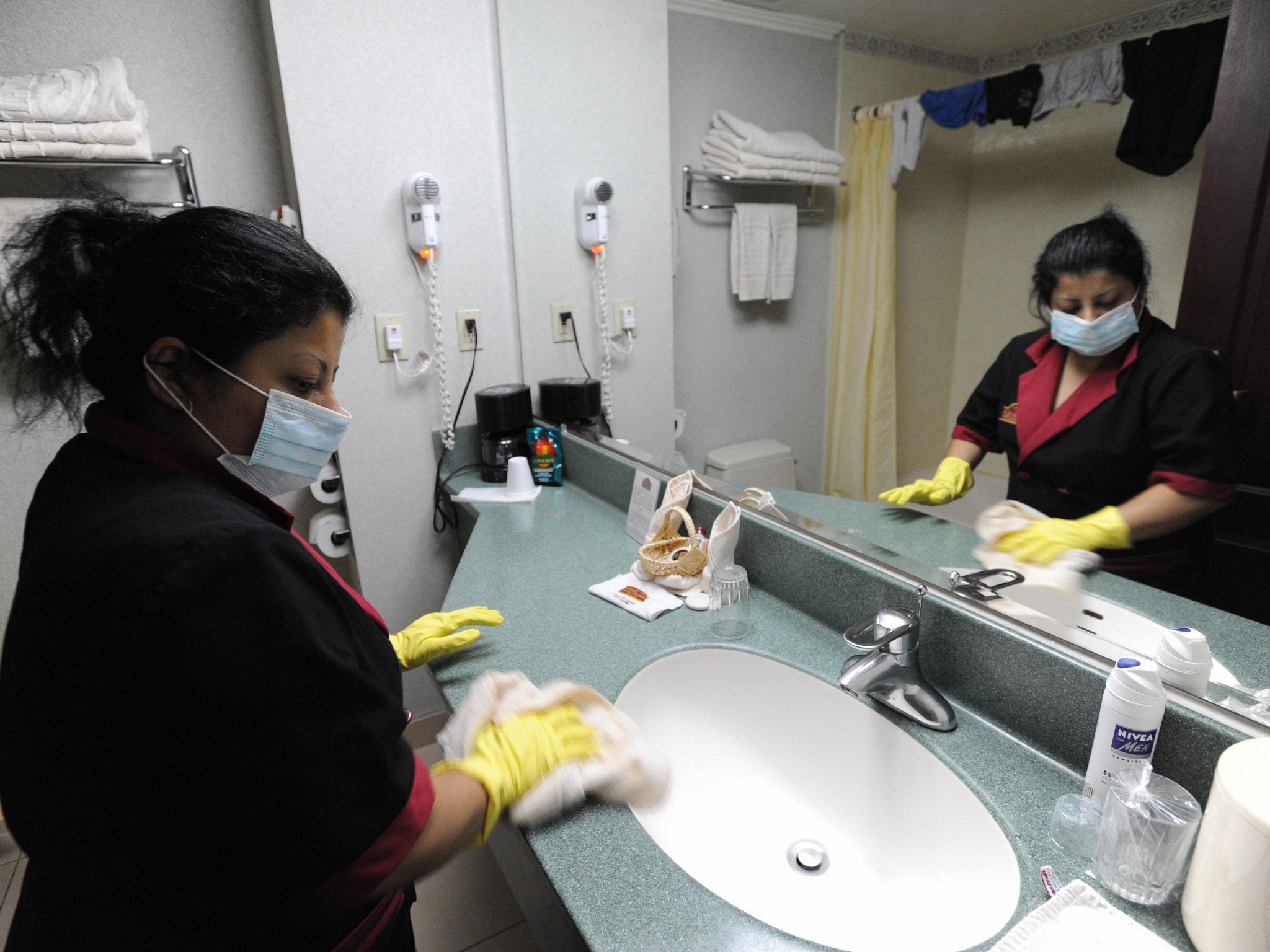Working class women in the UK were the unsung heroes of 2016 – here are four of their major victories
Among some of the most impressive cases are Ecuadorean cleaners Carolina and Susana, who led a campaign against Topshop and the private contractor they use to clean their stores

Your support helps us to tell the story
From reproductive rights to climate change to Big Tech, The Independent is on the ground when the story is developing. Whether it's investigating the financials of Elon Musk's pro-Trump PAC or producing our latest documentary, 'The A Word', which shines a light on the American women fighting for reproductive rights, we know how important it is to parse out the facts from the messaging.
At such a critical moment in US history, we need reporters on the ground. Your donation allows us to keep sending journalists to speak to both sides of the story.
The Independent is trusted by Americans across the entire political spectrum. And unlike many other quality news outlets, we choose not to lock Americans out of our reporting and analysis with paywalls. We believe quality journalism should be available to everyone, paid for by those who can afford it.
Your support makes all the difference.The year 2016 will be remembered for many seismic political shocks. In this tumultuous 12 months many will have missed some of the significant victories achieved by working class women; victories that need honouring, celebrating but, most essentially – building on. Here are the top four victories for working class women in 2016.
Teaching assistants in Derby and Durham, 95 per cent of whom are women, are facing pay cuts of up to 25 per cent imposed by the Labour-led local authorities that employ them. The women have not only taken strike action but have launched a community campaign involving parents and pupils, taking to the streets vocally to raise the profile of their fight.
In many ways the work of a teaching assistant is immeasurable in a monetary sense; as is often the case with women's work it is the emotional labour we give that makes up a huge part of what we do. These teaching assistants are fighting to defend the dignity and professionalism of their jobs as well as their livelihoods. The huge strength of their collective organisation and the courage they have shown in withdrawing their labour are sending a message not only that their work deserves to be valued but that grass roots organising still has the power to deliver tangible change for working women.
The start of 2016 saw female hospital workers take on the multi-national private contractor Aramark. The GMB union members working across the South London and Maudsley NHS Trust as cleaners, hostesses and catering staff organised strike action to win a pay rise. Inspired by the junior doctors strike, one of the strike leaders Catia Chanca put it succinctly, “If the doctors can do it, then why can't we?”
Carolina and Susana, Ecuadorean cleaners and members of the United Voices of the World Union, have led a campaign against Topshop (owned by the infamous Philip Green) and the private contractor they use to clean their stores. Their demand is simple: pay a living wage. The women were sacked this year and are still fighting for their reinstatement, their struggle is not over but their victory is measured by the courage they have shown in taking on the power and wealth of a man like Philip Green.
Finally Mags Dewhurst, a City Sprint courier is taking the firm to court in an attempt to prove she has worker employment status as opposed to being self-employed, as the company claim. The ruling will be important for Mags and her co-workers who hope that her case will be a step towards securing full employment rights.
It is important that we use the end of the year to reflect on and take heart from these struggles where we can, because there are huge battles ahead for working women. The Brexit vote will set the clock back for women's employment rights, the trade union bill will come into force and the gig economy is now growing. The social care crisis will put even more strain on the predominantly female workforce, as will education funding cuts in that sector.
Women workers have a long and proud history of organising against injustice and now more than ever we need a strategy for winning, one that is based on unleashing our collective strength. Let's look to the sisters that have gone before us to learn what we need and move forward into the struggle ahead.
Join our commenting forum
Join thought-provoking conversations, follow other Independent readers and see their replies
Comments